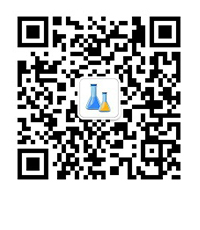Search Product
Structure Search
Search
Advantage Products
Location: Industrial Info
Serological detection of Mycoplasma pneumoniae antibody, rapid and accurate detection of pneumonia
2018-09-10
来源:亚科官网
10 September 2018
In the autumn, when the weather turns cold, the elderly and children are very susceptible to respiratory diseases. Among them, mycoplasmal pneumonia is a disease with a long incubation period and easy to mass outbreak. Because its clinical symptoms are not typical and cannot be distinguished from other pneumonia, it is mainly identified by laboratory tests. Let's talk about the detection of Mycoplasma pneumoniae.
Mycoplasma Pneumoniae (MP) infection mainly manifests as non-specific upper respiratory syndrome, and 3% to 10% of them develop into Mycoplasma pneumoniae pneumonia (MPP). MPP is generally seen in people under the age of 40, 5 to 20 years old is the best age, children under 5 years old are rare, can be spread by droplets, incubation period of 2 to 4 weeks, there is no preventive vaccine. Mycoplasma pneumoniae pneumonia is the most common clinical manifestation of the respiratory system, and is mainly showed as fever and cough, and moderate to high fever is more common. Symptoms of infants and young children are relatively heavy, and skin mucosal damage, myocardial damage, autoimmune hemolytic anemia, etc. may occur.
Because the imaging findings of mycoplasmal pneumonia are not typical, the diagnosis is mainly based on laboratory tests. Common methods include: mycoplasma culture, serological methods and molecular diagnostic methods. Among them, the serological method can be semi-quantitatively tested because of the availability of a commercial kit, and the price is relatively low, which is favored by hospitals. Antibodies to Mycoplasma pneumoniae include both IgM and IgG. Mycoplasma pneumoniae antibodies are usually detected 1 week after infection, and the antibody titer peaks are at 3~6 weeks and then begins to decline. IgM antibody positive can be used as a diagnostic marker for acute infection. IgG is later than IgM and needs to be observed dynamically. The serum antibody levels at 4 to 4 weeks are 4 times and 4 times higher, which can be used to diagnose Mycoplasma pneumoniae infection. A significant reduction in the description is at the end of the infection. Simultaneous determination of IgG and IgM can improve the diagnostic rate and achieve the purpose of guiding medication and improving efficacy.
The Mycoplasma pneumoniae IgM/IgG test kit from Shenzhen Yahuilong Biotechnology Co., Ltd. is the first kit for detection of Mycoplasma pneumoniae in China. It can detect the IgG/IgM antibody typing of Mycoplasma pneumoniae, effectively distinguish acute infection and past infection; the test results can be shown in 30 minutes; with high sensitivity specificity. It cooperates with the company's iFlash3000 acridine ester ultra-high-speed chemiluminescence detection platform to ensure higher sensitivity, while meeting the high-throughput automatic requirements of physical examination.
Mycoplasma pneumonia has different symptoms and is diagnosed in time for effective treatment. The diagnostic kit provides a prerequisite for timely treatment. For children and the elderly, it is necessary to minimize access to shopping malls, stations and other crowded places on weekdays to ensure that hand hygiene is the key to prevent disease infection.
Related links: Acridinium ester
Edited by Suzhou Yacoo Science Co., Ltd.












